Abstract: Actualization of the 17 sustainable development goals (SDGs) conceived by the United Nations in 2015 is a global challenge that may not be feasible in sub-Saharan Africa by the year 2030, except higher education play a committed role. There is need for higher education to embrace partnership and train people on the concepts of sustainability and sustainable development in the region. This paper presents a model center with curricular framework and partnership structure for the training. The Model Center for Sustainability Studies (MCSS) will enable partnerships with institutions in Africa and in advanced nations, thereby creating a global network for sustainability studies not found in sub-Saharan Africa. MCSS will train and certify public servants, government agencies, policymakers, entrepreneurs and personnel from organizations and students on aspects of the SDGs and sustainability science. It is important to add sustainability into environmental education and make environmental education a compulsory course in higher institutions and a secondary school certificate exam subject in sub-Saharan Africa. MCSS has 11 training modules that can be replicated anywhere in the world. Higher institutions in sub-Saharan Africa should follow this training perspective, to achieved SDGs, predicted 2040 against 2030.
Continue Reading
Abstract: After 20 plus years as a sustainability educator, the author had one of those lie-awake-at-night-staring-at-the-ceiling experiences where she faced some hard questions about the state of the world. In this article, describes her subsequent journey investigating the role of listening in shifting to a life-sustaining society and her Ph.D. research into how to support listening across differences to address complex social-ecological challenges.
Continue Reading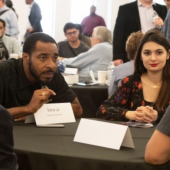
Abstract: A course in sustainability was implemented at the University of Houston-Downtown (UHD). The course was open to all students at UHD with a goal of teaching sustainability as the complex interaction of multiple fields (economics, social science and environmental science). UHD’s Center for Public Deliberation (CPD) was interested in applying the concepts of public deliberation into courses outside of communication. For effective public deliberation, students need to learn the skills of soliciting and incorporating diverse opinions as a pre-requisite of working together toward a solution. Many students attracted to sustainability, including science and technology majors, do not realize that most problems of sustainability are not merely technical problems but problems that arise from conflicting ethical frameworks. Students outside of public deliberation rarely have an opportunity to practice engaging in the tools that will be critical for them to develop solutions within the complexity of current social systems. We review the value of public deliberation in higher education and the logistics of bringing public deliberation into a sustainability course. We summarize the logistics of the collaboration with a focus on deliberation, planning and action in a semester-long group projects with a focus on creating healthier communities. We report on the impacts of both the communication and science faculty and the survey data from students. Finally, we discuss the value of such a collaboration in sustainability education.
Continue Reading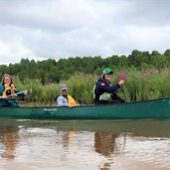
Continued implementation of conventional professional development strategies will likely fall short of the innovations needed to prepare teachers to fully engage in and implement environmental and sustainability education. The Rivers2Lake education program based in Superior, Wisconsin, USA illustrates a transformational approach to teacher professional development. We examine the program as a working example of three UNESCO learning processes that have been identified as aligning with and contributing to education for sustainability (Tilbury, 2011): collaboration and dialogue; engaging the whole system; and active and participatory learning. Through a review of these processes, the article offers considerations for innovating teacher professional learning for environmental and sustainability education. Key recommendations include shifting from isolated professional development events to ongoing professional learning as well as further investigation of the specific mechanisms that drive each of the UNESCO learning processes.
Continue Reading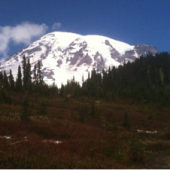
Abstract: In this article, we discuss the importance of Indigenous traditional ecological knowledge as the foundation of sustainability education, and we describe the need for, and successful efforts to, begin building an Indigenous Traditional Ecological Knowledge initiative at a research university. We share the guiding theoretical framework of our work, and the three goals of the initiative. We note the tensions involved in crafting a vision statement that a diverse group of faculty, staff, and students can all uphold in our collective work. We conclude with a description of our next planned steps for the initiative, and our hopes that this work will help decolonize sustainability education.
Continue Reading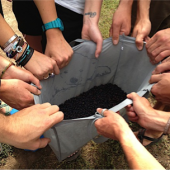
Abstract: The authors engage in a written dialog about their experiences with and understanding of hope and agency in the context of higher education happening in the midst of many converging crises of sustainability. The authors discuss their personal and professional views about teaching sustainability and about leading and collaborating in sustainability-oriented efforts. They consider sustainability and sustainability education efforts as both internal processes that take place within the person and external processes oriented toward others and the world. They explore questions of leadership and authority in relation to hope and agency and discuss the importance of making and communicating honest appraisals of the current situation of humans and the biosphere as a basis for fostering clear-eyed hope and agency in themselves and students.
Continue Reading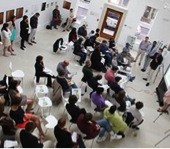
Helfrich JSE Nov 2015 Hope Issue PDF Abstract: This paper explores the creation and successes to date of an undergraduate minor program in Sustainable Community Development at Hobart & William Smith Colleges (HWS) in Geneva, New York. As a case study, it describes the program that HWS faculty created, the various components that comprise the […]
Continue Reading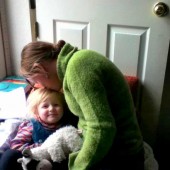
Story-to-Song (STS) is a collaborative musical process in which a participant and a musical guide work together to create a song from the participant’s spoken story. Within this process can be found stages that progressively transform a written text into a song with a melody, verses, chorus, groove, and chord progression. The authors, who have worked as both musical guides and participants, explore this method in a scholarly realm in order to deconstruct the stages for composing a song. Through a creative deconstruction of this method, they have gained insight into how to create a sustainable, collaborative partnership.
Continue Reading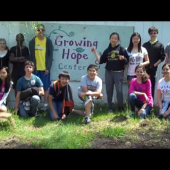
This article presents a case study of a middle school project based on the experience of two teachers and an administrator. The project gives 8th grade students an opportunity to make a difference in the world through a Sustainability Action Project. In this article you will read the rationale behind this project. You will get an overview of and a timeline for its implementation over the course of a complete academic year. We will provide you with some examples of projects as well as refer you to our school webpage where you can view these projects in more detail. Finally, we have included appendices of several of the materials we provide to our students. We hope that you will clearly see what sets this learning experience apart from other sustainability projects, and that you will be able to adopt a similar project in your school.
Continue Reading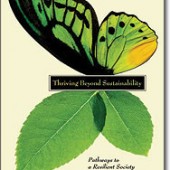
Rick Medrick gives context for Andres Edwards’ new book that takes us beyond sustainability to thriveability. The book suggests that, as the sustainability movement gathers force in the realm of all 3 “E’s” (ecological, economic, social equity), we are at a point of moving towards establishing a newly organized social and ecological environment. Strategies that will allow this to be a thriving environment, according to Edwards, are “SPIRALS:” Scalable, Place-making, Intergenerational, Resilient, Accessible, Life-affirming, and Self-caring.
Rick Medrick nos da un marco de referencia para el libro de Andres Edwards que nos lleva mas allá de la sustentabilidad a la “thriveability.” El libro propone que, mientras el movimiento de sustentabilidad gana fuerzas en el área de los tres “E’s” (ecológico, económico, equidad social), estamos al punto de establecer un ambiente social y ecológico mejor organizado. Las estrategias que nos permita crear este ambiente de superarse, según Edwards son “SPIRALS”: Escalable, Del Lugar, Intergeneracional, Resiliente, Accesible, Afirmando la Vida, y Auto-Cuidando.
Continue Reading